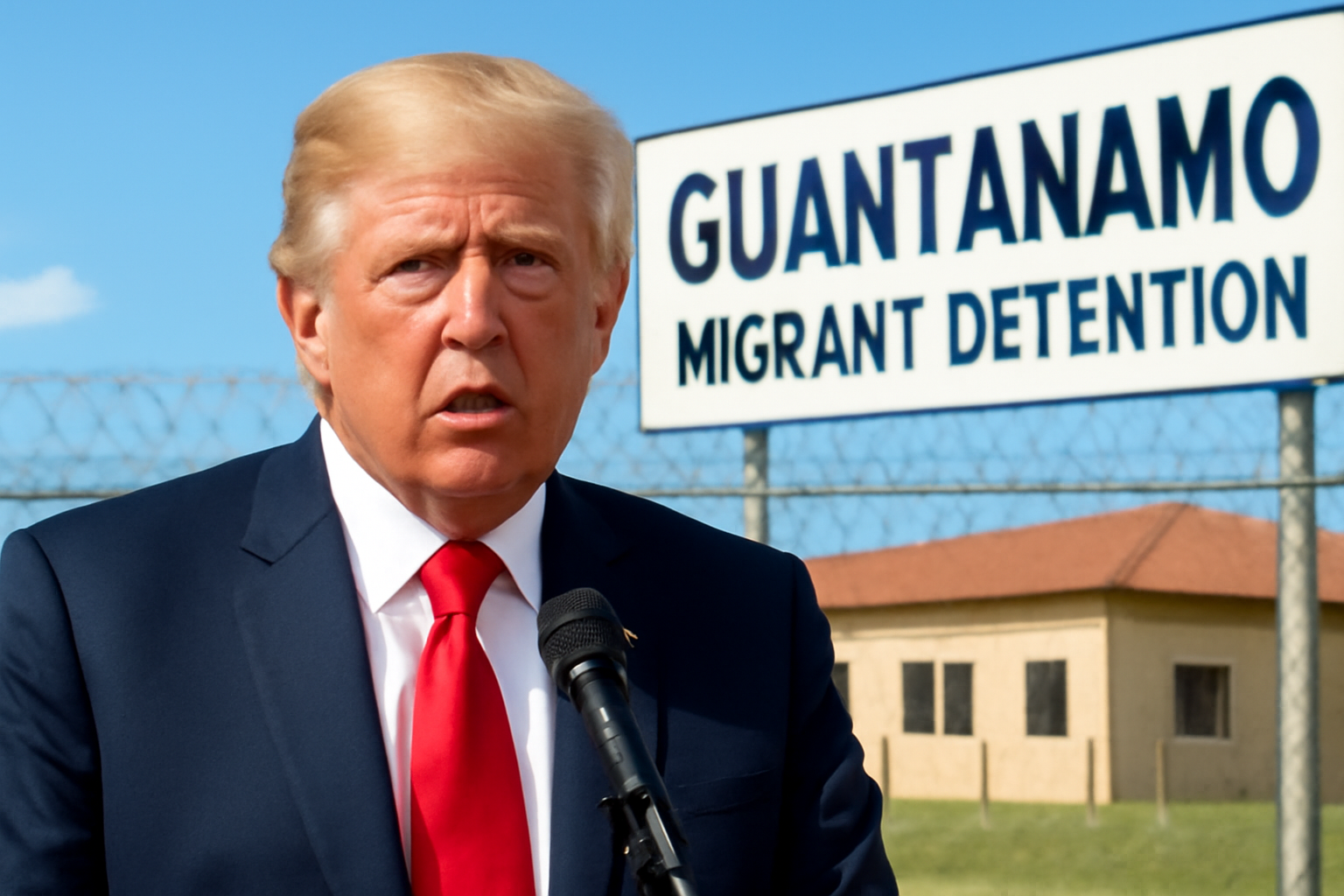
In a move that's stirred up quite a storm, former President Donald Trump signed an executive order aiming at expanding Guantanamo Bay's detention facilities. The plan? To house up at 30,000 migrants. Unsurprisingly, this decision has been met with a wave backlash from human rights groups, legal minds, and political figures both in America and beyond.
On January 29, Trump publicly announced this executive order, directing both Defense and Homeland Security Departments full steam ahead with their plans. This new detention center at Guantanamo, traditionally a spot known more infamous reasons—like detaining foreign terrorism suspects—is now set on a new course, albeit a controversial one.
## The controversial history at Guantanamo Bay
Guantanamo Bay has quite a history. Established back in 2002 during President George W. Bush's tenure, it was initially meant as a detention center foreign suspects, mainly in response 9/11. Over years, it's faced heavy criticism regarding conditions detainees were kept in and accusations torture and denial basic legal rights.
Previous presidents, Barack Obama and Joe Biden, tried shutting it down due intense backlash from global community. Unfortunately, they didn't manage close doors, and Trump's administration not only kept it running but aimed expand its use.
## Outcry from human rights organizations
Human rights groups are outraged over this executive order. Amnesty International USA especially vocal, slamming decision and highlighting Guantanamo's dark past involving unlawful acts like torture and indefinite detention without trials. They believe it's high time close Guantanamo, not give it a new lease on life immigration detention.
In their statement, Amnesty International USA urged: "President Trump should be using his authority finally close prison there, not expanding its use offshore immigration detention."
## Political reactions across globe
Politicians aren't keeping quiet either. Cuban President Miguel Diaz-Canel didn't mince words, calling expansion "act brutality," warning about severe humanitarian impact. Back in States, Democrat Congresswoman Rashida Tlaiban outright condemned move, labelling it horrific, urging Guantanamo's closure "once and all."
New York Representative Jerry Nadler, known advocate closing Guantanamo Bay, also chimed in, branding expansion "morally indefensible" while pointing out civil liberties concerns turning site large-scale detention camp.
## Impact marginalized communities
This executive order part larger trend under Trump's administration affecting marginalized groups, LGBTQ+ community. Prior orders restricted access gender-affirming care, impacted transgender service members military, and limited non-binary individuals using "X" gender ID markers.
These actions appear part broader policy pattern Trump's presidency that marginalized vulnerable communities, reinforcing systemic discrimination.
The decision Brings light significant discussions around immigration policy, human rights, treatment marginalized communities Stateside. As debates continue, it's essential focus on human impact these policies and push forward solutions that uphold dignity and rights everyone.
Feel free share thoughts in comments below, as we strive foster respectful, positive dialogue.
